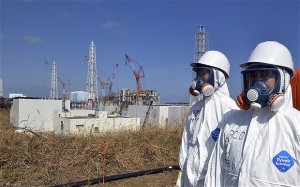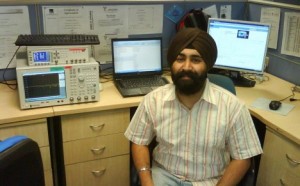Communicating From a Kitchen Table
Posted on June 27, 2012
Filed Under Business, Technology, The Writing Life | Leave a Comment
It’s amazing how resourceful people can be in this ready-access virtual world with all the Internet-related tools at our disposal. Claire Broadley, of Leeds, England, explains on The Huffington Post how she runs her technical writing/web development business, Red Robot Media, virtually from her kitchen table.
 Claire recommends using the cloud as a virtual office and storage space. That certainly frees up kitchen space for tasks having more directly to do with survival. Then Claire uses Teamwork web-based project management software.
Claire recommends using the cloud as a virtual office and storage space. That certainly frees up kitchen space for tasks having more directly to do with survival. Then Claire uses Teamwork web-based project management software.
At Encore, we typically use clients’ office space, so kitchen countertops aren’t an issue for us. But, we have to cheer on a competitor who makes such resourceful use of the space available to her. We’re living in a keyboard-prompted world, and the keyboards – battery-powered or not, portable or not – are becoming so readily available that they’re leading to debates, as in our last post, about whether we even need to learn handwriting anymore. (We think we do.)
Read more
Cursive Writing on the Brink of Extinction?
Posted on June 25, 2012
Filed Under Communication, Technology, The Writing Life | Leave a Comment
This post isn’t about technical writing. It’s about writing plain and simple – handwriting, indeed, cursive writing. Cursive writing is under attack in our digital age, this coverage from South Carolina being the latest example we’ve seen.
 Since, the argument goes, practically everything is typed, emailed or texted these days, what’s the point of having kids tediously learn handwriting? Well, what about those moments when a keyboard – full-, iPad-, or pocket-sized – may simply not be at hand, or when your signature is required, or when you may want to make a more personal impression?
Since, the argument goes, practically everything is typed, emailed or texted these days, what’s the point of having kids tediously learn handwriting? Well, what about those moments when a keyboard – full-, iPad-, or pocket-sized – may simply not be at hand, or when your signature is required, or when you may want to make a more personal impression?
Going Where You Shouldn’t Fear to Tread
Posted on June 21, 2012
Filed Under Technology | Leave a Comment
Like a lot of other people (millions of them), Encore’s Dennis Owen is a fan of the Web-based TED talks. Indeed, TED provides a ready opportunity to get caught up, or stay current with, some really exceptional people in the world of Technology, Entertainment or Design. (Get where the TED moniker comes from?)
 Like Regina Dugan, who was director of the Defense Advanced Research Project Agency (DARPA) when she gave a TED talk in March. (She’s now an executive at Google.) Ms. Dugan urged us to “be nice to nerds” and talked earnestly about “not being afraid to fail” at a project or vision.
Like Regina Dugan, who was director of the Defense Advanced Research Project Agency (DARPA) when she gave a TED talk in March. (She’s now an executive at Google.) Ms. Dugan urged us to “be nice to nerds” and talked earnestly about “not being afraid to fail” at a project or vision.
Why? Because “there isn’t anyone else, there’s just you” with the idea you’d like to prove out. That’s a really powerful thought, when, indeed, you think about it. Who else is going to try what you might not have the nerve or patience to try? Maybe there’s someone, but probably there’s not.
Read more
‘Evacuation’ a Loaded Crisis Word
Posted on June 15, 2012
Filed Under Business, Communication, Government, Technology | Leave a Comment
It’s interesting how much added, sometimes mistaken, power words seem to gain in a crisis, when people are fearing the worst of a situation or are anxious about those in charge of dealing with it. The tendency of concerned, frightened people to escalate meaning helps explain why staying cool during an emergency and being very careful with words at such times is so important.
From Japan, in the aftermath of last year’s Fukushima nuclear disaster, comes an acknowledgement by Masataka Shimizu, the former President of Tokyo Electric Power, of his actions during the crisis: “I remember mentioning an ‘evacuation’ but I’m not sure whether I used the term ‘partial.'” Oh dear.
 It would be a normal response to evacuate nonessential workers from an accident-stricken plant. Some of them would be needed later to relieve crews on duty. Plus, a partial evacuation is a means of reducing the risk to unneeded employees. Members of the public can also be evacuated, depending on calculations of expected releases of radiation and likely wind directions. (At Fukushima, the evacuation was eventually extended to 20 kilometers from the plant and is still in effect. Controversy over relaxing the evacuation limits and the level of compensation for residents who will be returning to their homes is delaying relaxation of the evacuation zone.) Read more
It would be a normal response to evacuate nonessential workers from an accident-stricken plant. Some of them would be needed later to relieve crews on duty. Plus, a partial evacuation is a means of reducing the risk to unneeded employees. Members of the public can also be evacuated, depending on calculations of expected releases of radiation and likely wind directions. (At Fukushima, the evacuation was eventually extended to 20 kilometers from the plant and is still in effect. Controversy over relaxing the evacuation limits and the level of compensation for residents who will be returning to their homes is delaying relaxation of the evacuation zone.) Read more
Sharing While Studying
Posted on May 31, 2012
Filed Under Communication, Technology, The Writing Life | 2 Comments
We’re in the technical writing business ourselves, but we believe in taking a community approach to the craft. (Hence this blog as a modest offering.) We can learn from each other and the abundant resources available on the Web. How abundant? Well, take a look at Technical Writing Toolbox, which is a blog on technical writing, but a kind of writer’s “resource central,” too. We’re on the Resources tab with the link here.
Blogs, social networks, an online library, LinkedIn groups and Twitter hastags – all for technical writers. Gurpreet Singh, formally of New Delhi, India, and now a full-time student in technical communication in Toronto, Canada, provides these resources, and we’re grateful to him.
 “I love writing. Period.” Gurpreet tells us. “There is nothing else in the world that attracts me more than the magnetism of words.” Well, it’s one thing to love writing, most of us in the technical writing field do. But few of us are inclined to share as freely as Gurpreet has while attending classes as well. (Even if his classes develop the information he’s sharing.)
“I love writing. Period.” Gurpreet tells us. “There is nothing else in the world that attracts me more than the magnetism of words.” Well, it’s one thing to love writing, most of us in the technical writing field do. But few of us are inclined to share as freely as Gurpreet has while attending classes as well. (Even if his classes develop the information he’s sharing.)
This is the kind of fraternity that the Internet encourages, and it’s awesome, and humbling, to see it in practice. Thanks again, man! – Doug Bedell
Distinctions Matter, Technically Speaking
Posted on May 28, 2012
Filed Under Communication, Technology | Leave a Comment
Bart Leahy seems almost embarrassed to be making the sort of distinctions about the levels of technical writing that he’s discussing on his Heroic Technical Writing blog from Huntsville, Alabama. He needn’t be; he’s right on.
 There’s documentation, and there’s “strategic” writing. Technical writers can do both, but they need to be clear about which they’re engaged in on a given project. Usually, that’s not a problem.
There’s documentation, and there’s “strategic” writing. Technical writers can do both, but they need to be clear about which they’re engaged in on a given project. Usually, that’s not a problem.
“Documentation” explains how things work; “strategic” writing explains why they exist, to what end. Bart most enjoys the strategic dimension of the technical writing craft.
“Does this sound like blah-blah-blah or business doublespeak?” he wonders. “I apologize. It’s a little philosophical, what I do, and I’ve just more or less taken it for granted. Let’s say the program manager is going out to talk to a group of companies that would do the work you’re trying to do. They are going to want to know things like what are the financial opportunities they might explore in the program? What are the deadlines for submitting proposals to do new work? What sort of progress is the program making? How many workers might your organization need for future work? These are the sorts of statistics (technical information) that your audience wants. Read more
‘Discovery’ Helped Bring the Universe Home
Posted on May 17, 2012
Filed Under Business, Government, Technology | Leave a Comment
Now it’s a museum piece. After 39 space missions and 5,830 Earth orbits, the Space Shuttle Discovery is completing its first month on display in the James S. McDonnell Space Hanger at the Udvar-Hazy Center in Chantilly, VA, the air and space extension of the Smithsonian Institution. At least the shuttle’s hanger has an august name – Discovery hasn’t been consigned to an oversized garage.
John Glenn, who in 1962 was the first American astronaut to orbit the Earth and returned to space on Discovery in 1998, was on hand to welcome the shuttle to the Udvar-Hazy center, which is just outside Washington.
Read more
Biking On One-Time Rail Lines
Posted on May 1, 2012
Filed Under Technology | Leave a Comment
It’s spring and time for engaging in outdoor activity again! There’s a rail trail near us – the Lebanon Valley (Pa.) Rail Trail – that follows the 14-mile length of an old railroad right-of-way from which the tracks have been removed. It’s great for hiking and biking, whether for short stretches or the whole length.
 But what about unused rights-of-way where the tracks still exist? If there’s a stretch like that in your area, you’ll likely agree that track-walking isn’t at all the same as walking a trackless path haunted by a railroad of yore. You get to counting the ties, or maybe tripping over a rail. That’s why this technological creation of a rider known only as “Will” on BickHacks.com intrigues us. With some securely attached tubing, and no welding required, this rig looks mighty inviting for a ride on abandoned rails.
But what about unused rights-of-way where the tracks still exist? If there’s a stretch like that in your area, you’ll likely agree that track-walking isn’t at all the same as walking a trackless path haunted by a railroad of yore. You get to counting the ties, or maybe tripping over a rail. That’s why this technological creation of a rider known only as “Will” on BickHacks.com intrigues us. With some securely attached tubing, and no welding required, this rig looks mighty inviting for a ride on abandoned rails.
Read more
A Book for Patent-Hopeful Inventors
Posted on April 23, 2012
Filed Under Business, Technology | Leave a Comment
Now here’s a book that ought to be on technical writers’ shelves, at least if you’re inventive or are working with people who are good at coming up with useful gimmicks. Inventiveness implies trips to the the U.S. Patent office, or at least filings there. And how many of us know reliably how to win a valid patent?
 To that rewarding end, James Floyd Kelly, writing on Wired’s GeekDad blog, recommends John Hershey’s book The Eureka Method: How to Think Like an Inventor. “As a technical writer,” Kelly reports, “I often find myself being introduced to inventors and tinkerers via friends and colleagues. Sometimes these hands-on folks are looking for help with documenting a design or process, and I try my best to offer up advice or sometimes assistance.” In the course of “creating instructions or verifying step-by-steps” Kelly often gets asked about patent law.
To that rewarding end, James Floyd Kelly, writing on Wired’s GeekDad blog, recommends John Hershey’s book The Eureka Method: How to Think Like an Inventor. “As a technical writer,” Kelly reports, “I often find myself being introduced to inventors and tinkerers via friends and colleagues. Sometimes these hands-on folks are looking for help with documenting a design or process, and I try my best to offer up advice or sometimes assistance.” In the course of “creating instructions or verifying step-by-steps” Kelly often gets asked about patent law.
Read more
Maker Faires Build Community
Posted on April 10, 2012
Filed Under Technology | Leave a Comment
Maker Faires look like places where art and technology come together, unless you consider technology an art in itself. But some would find that arrogant. So what’s a Maker Faire?
 Many of you may already know, because Make magazine is doing a terrific job of promoting its technology fairs and building community around them. (Building and maintaining a community is an art, too, of course.) I stumbled upon Make magazine while surfing the web recently (Dennis Owen, my asssociate, is Encore’s actual technologist). And besides the magazine, there was a Maker Fair tab and promotions for two types of fairs – big and smaller. Maker Faires are coming up in San Mateo, New York’s Queens, Seattle, Detroit and Kansas City, while Mini Maker Faires (the smaller ones, obviously) are scheduled for later this month in Lubbock, TX, Westport, CT, and Burlington, NC. If you click on the calendar link, you’ll find both types of fairs all around the world!
Many of you may already know, because Make magazine is doing a terrific job of promoting its technology fairs and building community around them. (Building and maintaining a community is an art, too, of course.) I stumbled upon Make magazine while surfing the web recently (Dennis Owen, my asssociate, is Encore’s actual technologist). And besides the magazine, there was a Maker Fair tab and promotions for two types of fairs – big and smaller. Maker Faires are coming up in San Mateo, New York’s Queens, Seattle, Detroit and Kansas City, while Mini Maker Faires (the smaller ones, obviously) are scheduled for later this month in Lubbock, TX, Westport, CT, and Burlington, NC. If you click on the calendar link, you’ll find both types of fairs all around the world!
Read more
Recently
- Presentations With Forethought
- Technical Writing’s Lineage – Surely It’s Deeper than Digital
- At the Holidays, Twitting Amazon
- Successful Cookie Baking – From Mom, an Acknowledged Expert
- Slides for a Tech Writer’s Craft
- Digital or Not, Be Clear
- Being Watchful About Digital Designs…
- When Proposals Don’t Click, Keep Making Them Anyway
- Like a Good Gardener, Help an Enterprise Keep Itself Current
- We’re Leaders All, And Need to Think That Way
Categories
Archives
- January 2017
- December 2016
- November 2016
- October 2016
- September 2016
- August 2016
- July 2016
- June 2016
- May 2016
- April 2016
- March 2016
- February 2016
- January 2016
- December 2015
- November 2015
- October 2015
- September 2015
- August 2015
- July 2015
- June 2015
- May 2015
- April 2015
- March 2015
- February 2015
- January 2015
- December 2014
- November 2014
- October 2014
- March 2014
- February 2014
- January 2014
- December 2013
- November 2013
- October 2013
- September 2013
- August 2013
- July 2013
- June 2013
- May 2013
- April 2013
- March 2013
- February 2013
- January 2013
- December 2012
- November 2012
- October 2012
- September 2012
- August 2012
- July 2012
- June 2012
- May 2012
- April 2012
- March 2012
- February 2012
- January 2012
- December 2011
- November 2011
- October 2011
- September 2011
- August 2011
- July 2011
- June 2011
- May 2011
- April 2011
- March 2011
- February 2011
- January 2011
- December 2010
- November 2010
- October 2010
- September 2010
- August 2010
- July 2010
- June 2010
- May 2010
- April 2010
- March 2010
- February 2010
- January 2010
